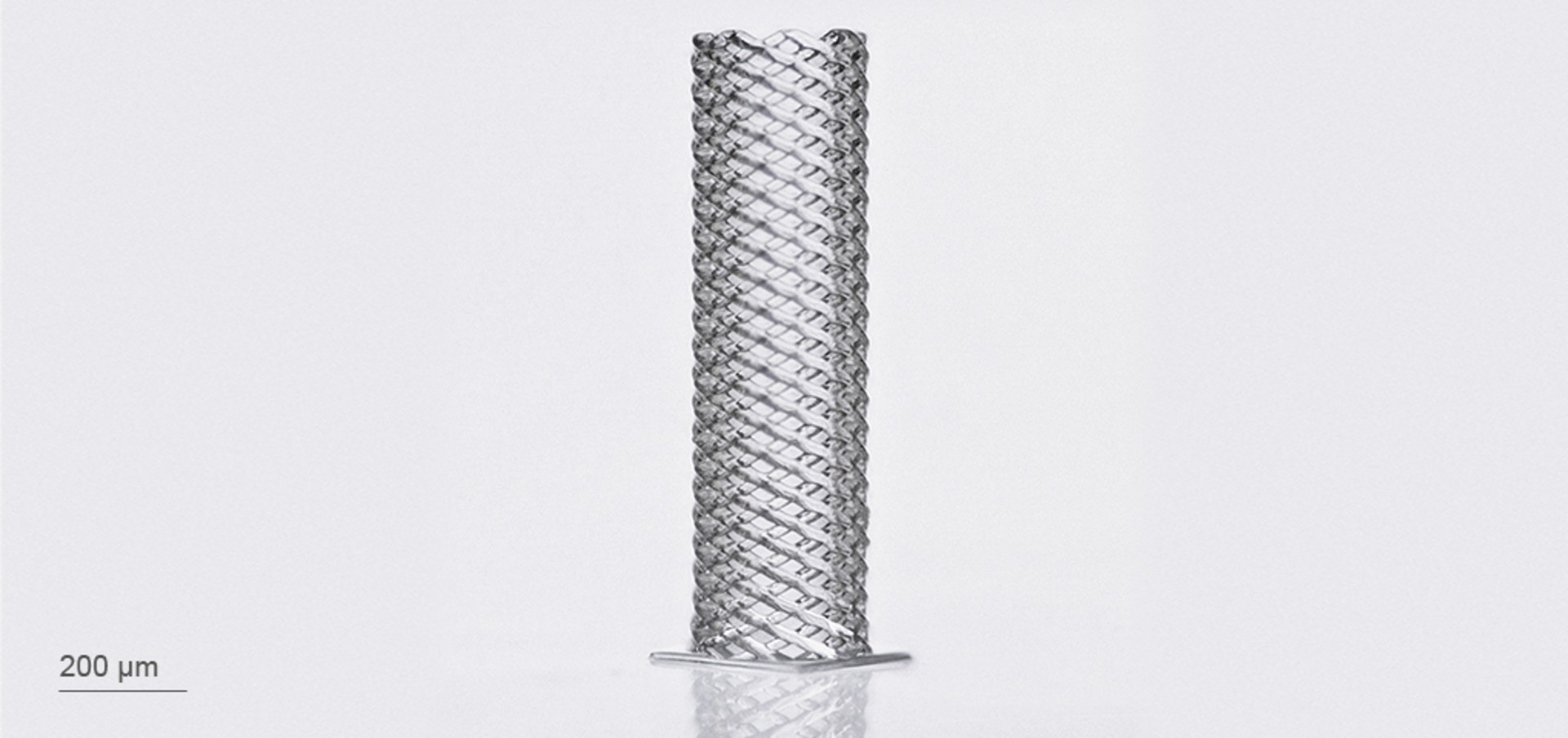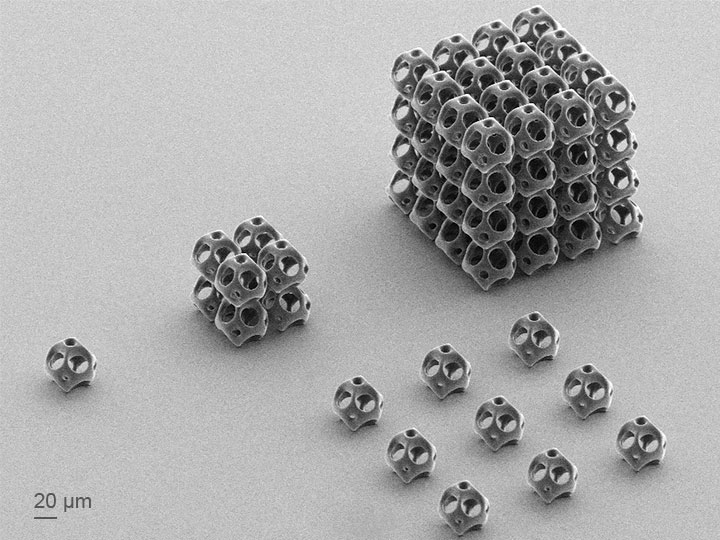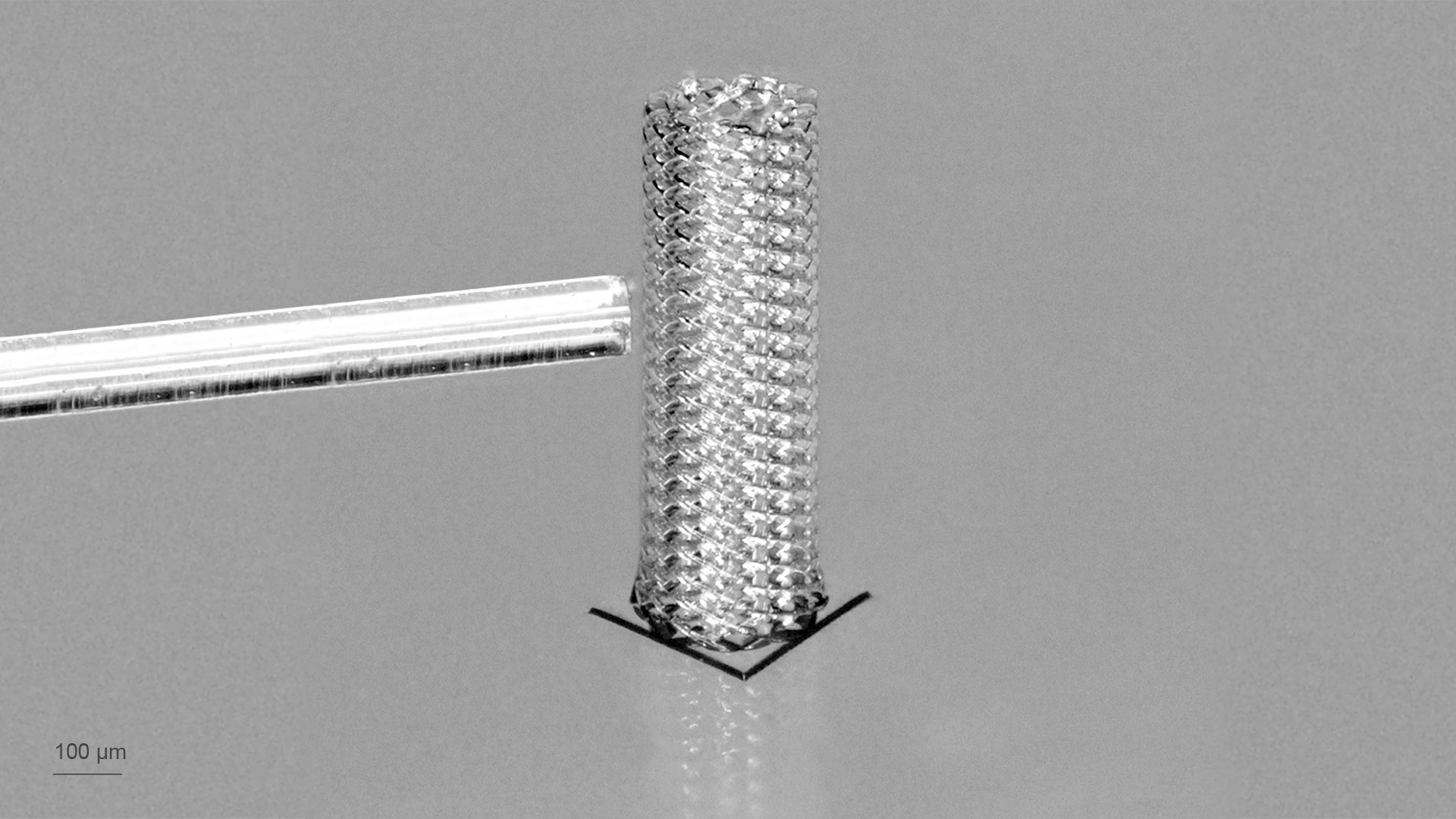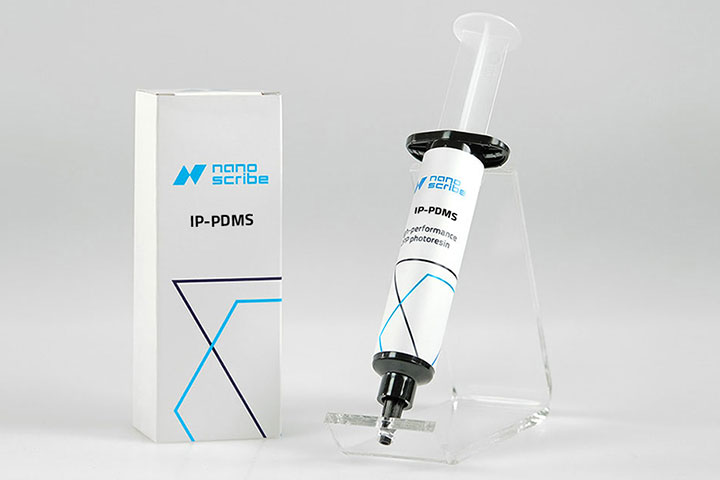The IP-PDMS photoresin is Nanoscribe’s first printing material with elastomeric properties. The softness, flexibility and elasticity of IP-PDMS are particularly beneficial for new microfabrication strategies in life sciences, microfluidics and MEMS. The wide range of pioneering applications include elastic freeform cell scaffolds and tissue engineering applications, 3D-structured surfaces and microfluidic devices. “In our initial tests for 3D printing soft polymeric structures, IP-PDMS turned out to be a promising material. Personally, I am excited to exploit the new resin for microrobotic components and biomimetic scaffolds”, says PhD Ada-Ioana Bunea, Assistant Professor at the Nanolab of the Technical University of Denmark (DTU) in Copenhagen, summarizing her upcoming research projects with IP-PDMS.
Mechanical properties for 3D Microfabrication of pioneering applications
The new IP-PDMS photoresin shows a Young’s modulus of 15.3 MPa and is thus about three orders of magnitude more elastic than the popular IP-S photoresin of Nanoscribe’s IP Resin portfolio. First users of the printing material appreciate its elastic tensile elongation: “IP-PDMS is a remarkably elastic printing material that can be stretched by up to 240%”, says Dr. René Hensel, Deputy Head of Functional Microstructures at the Leibniz INM – Institute for New Materials in Saarbrücken (Germany). The interplay of these mechanical characteristics paired with its low refractive index, chemical inertness and gas permeability are well-known for standard PDMS. Together with the versatility of Nanoscribe’s 3D Microfabrication technology and solutions, IP-PDMS offers considerable potentials for novel applications and devices in life sciences, microfluidics and micromechanics. “IP-PDMS, as a 3D printable material, is highly interesting for micropatterned functional surfaces. We can skip time-consuming molding steps to transfer designs into elastomers and new designs become feasible”, Dr. René Hensel emphasizes its potentials for new functional surfaces.





